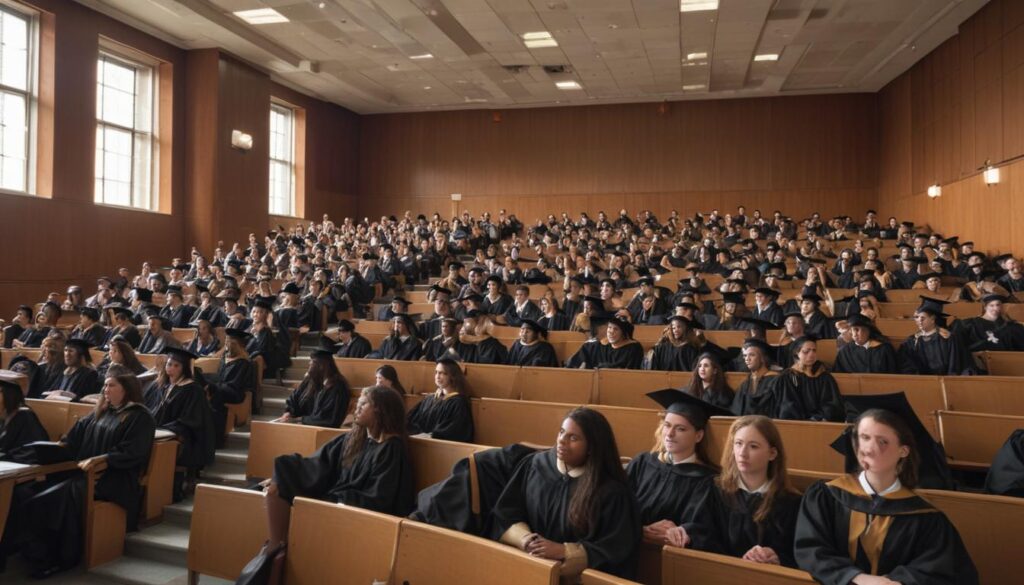Now Reading: AI Powered Personalized Learning
-
01
AI Powered Personalized Learning
AI Powered Personalized Learning

The Role of Artificial Intelligence in Personalized Learning
Have you ever felt like you were just a face in the crowd in a classroom? The one-size-fits-all approach to education has long been a challenge for both students and teachers. Eager learners are held back, while those who need a little more time are often left behind, struggling to keep up. This traditional model, designed for the masses, fails to recognize the unique learning style, pace, and interests of each individual. It can lead to disengagement, frustration, and a missed opportunity to unlock a student’s true potential.
Imagine an educational experience designed just for you. A system that knows when you are ready for a new challenge, identifies exactly where you are struggling, and provides the perfect resource at the perfect time. This is not science fiction; it is the reality being built today with Artificial Intelligence. AI is emerging as the most powerful tool for creating truly personalized learning environments. It acts as a dedicated academic partner, adapting to every student’s needs to make learning more effective, engaging, and ultimately, more human.
What is AI-Powered Personalized Learning
At its core, AI-powered personalized learning is an educational approach that uses technology to tailor content, pacing, and learning paths to the specific needs of each student. It moves beyond a static curriculum and creates a dynamic, responsive learning journey. This is achieved by leveraging sophisticated algorithms that collect and analyze vast amounts of data about a student’s interactions. Every click, every answer, every hesitation, and every minute spent on a topic becomes a valuable data point.
The process is continuous and adaptive. As a student works through digital lessons, quizzes, and activities, the AI system builds a comprehensive profile of their strengths, weaknesses, and preferred learning methods. For example, the system might notice a student consistently answers visual-based questions faster than text-based ones, suggesting a preference for visual learning. It then adjusts the upcoming material accordingly, perhaps offering a video explanation instead of a lengthy article to introduce a new concept. This real-time feedback loop ensures the learning experience is always optimized for the individual.
The Key Benefits of AI in the Classroom
The integration of artificial intelligence into education offers transformative benefits that touch every aspect of the learning process. From customizing lesson plans to boosting engagement, AI tools are empowering both students and educators in profound ways.
Creating Customized Learning Paths
Perhaps the most significant advantage of AI is its ability to craft unique learning pathways for every student. The system can pinpoint knowledge gaps with incredible precision. If a student is struggling with a specific mathematical concept, the AI will not simply repeat the same lesson. Instead, it might provide foundational exercises to reinforce a prerequisite skill, offer an interactive simulation to explain the concept differently, or present a series of progressively harder problems to build confidence and mastery.
This level of customization ensures that students are always working within their “zone of proximal development“—the sweet spot where the material is challenging enough to be stimulating but not so difficult that it becomes discouraging. For advanced learners, the AI can introduce more complex topics and projects, keeping them engaged and preventing the boredom that often comes with mastering material faster than their peers. This creates a classroom environment where every student is appropriately challenged and supported on their individual journey.
Enhancing Student Engagement and Motivation
Traditional learning can sometimes feel passive. AI transforms this by making education an interactive and engaging experience. Through gamification, students can earn points, badges, and rewards for mastering new skills, turning learning into a fun and compelling challenge. Instant feedback is another powerful motivator. Instead of waiting days for a teacher to grade a test, students receive immediate, constructive input on their performance, allowing them to correct mistakes and understand concepts in the moment.
This constant interaction and sense of progress foster a deeper connection to the material. When students feel that their education is tailored to them and that they are actively making progress, their intrinsic motivation soars. The AI can also adapt content to a student’s declared interests. For instance, a word problem about calculating velocity could be framed around a favorite sport or a sci-fi spaceship, making the lesson more relatable and memorable. This personal touch helps students see the relevance of what they are learning in their own lives.
Freeing Up Educators for High-Value Interaction
A common misconception is that AI aims to replace teachers. The reality is the opposite. AI is designed to be a powerful assistant, automating the time-consuming and repetitive tasks that often bog educators down. This includes grading multiple-choice assessments, tracking student progress, and compiling performance reports. By offloading this administrative burden, AI frees up teachers to do what they do best and what technology cannot replicate.
With more time and detailed insights provided by the AI, educators can focus on high-impact activities. They can provide targeted one-on-one mentoring to struggling students, facilitate collaborative projects that build critical thinking and social skills, and act as guides and mentors rather than just lecturers. This shift allows for deeper, more meaningful human connections in the classroom, addressing the emotional and complex needs of students in a way that only a human teacher can.

Challenges and the Future of AI in Education
Despite its immense potential, the widespread adoption of AI in education is not without its challenges. Ensuring data privacy and security is paramount, as these systems handle sensitive student information. There is also the issue of the digital divide, as equitable access to the necessary technology and internet connectivity must be addressed to prevent widening achievement gaps. Furthermore, developers must be vigilant in preventing algorithmic bias to ensure that AI tools are fair and inclusive for all students, regardless of their background.
Looking ahead, the future of AI in education is incredibly exciting. We can expect to see the development of highly sophisticated AI tutors that can engage in natural language conversations with students, answering complex questions and guiding them through difficult problems. Virtual and augmented reality labs powered by AI will offer immersive, hands-on learning experiences in a safe environment. The goal is an ecosystem where technology and teachers work in synergy, creating a flexible, supportive, and profoundly personal educational journey for every learner on the planet.





































